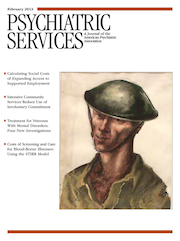Results of a new survey of Americans age 65 and older suggest that many with depression or anxiety are not receiving treatment that meets evidence-based standards of care, such as being informed about medication side effects and receiving timely follow-up. As a result, more than half of those who obtain treatment report that they still struggle with frequent feelings of anxiety or depression.
The national survey, “Silver and Blue: The Unfinished Business of Mental Health Care for Older Adults,” which was conducted in November 2012 and released by the John A. Hartford Foundation, polled a representative sample of 1,101 adults age 65 and older. An additional 307 interviews were conducted with older adults who had a diagnosed mental disorder or had experienced feelings of depression or anxiety since age 65.
Stigma associated with having a mental disorder or obtaining care was low among the survey respondents; only 13% reported that they would not tell anyone if they were feeling depressed or anxious. Most (77%) said they would tell their primary care provider if they were feeling depressed or anxious—even if they had to raise the issue on their own without being asked. Only one in four (25%) said that their doctor had asked about their mood in the past 12 months.
About one in six respondents (16%) had received treatment for depression, anxiety, or another mental health issue since turning 65. Those who had talked to their doctor about getting treatment reported conversations that lacked components of evidenced-based standards of care. For example, 38% said that their health care provider did not tell them about possible side effects of treatment. Nearly half (46%) of those receiving treatment said that their provider did not follow up with them within a few weeks—a critical component of effective care. More than half (62%) said that their doctor should have someone on staff who can help patients with mental health issues. African Americans (78%) and those currently being treated for a mental health problem but still struggling with symptoms (82%) were most likely to want a trained professional in their doctor’s office.
Overall, very few respondents understood the health risks of depression: only one in five (21%) had heard that depression is believed to double an individual’s risk of developing dementia, and only one in three knew that it can double the risk of heart disease (34%) or increase the risk of dying from another disease (35%). Depression is not a natural part of the aging process, but more than a quarter of respondents (27%) believed that it is.
The John A. Hartford Foundation is a private nonpartisan organization focused on improving health care for older Americans. These and other survey findings are available on the foundation’s Web site at
www.jhartfound.org/learning-center.

